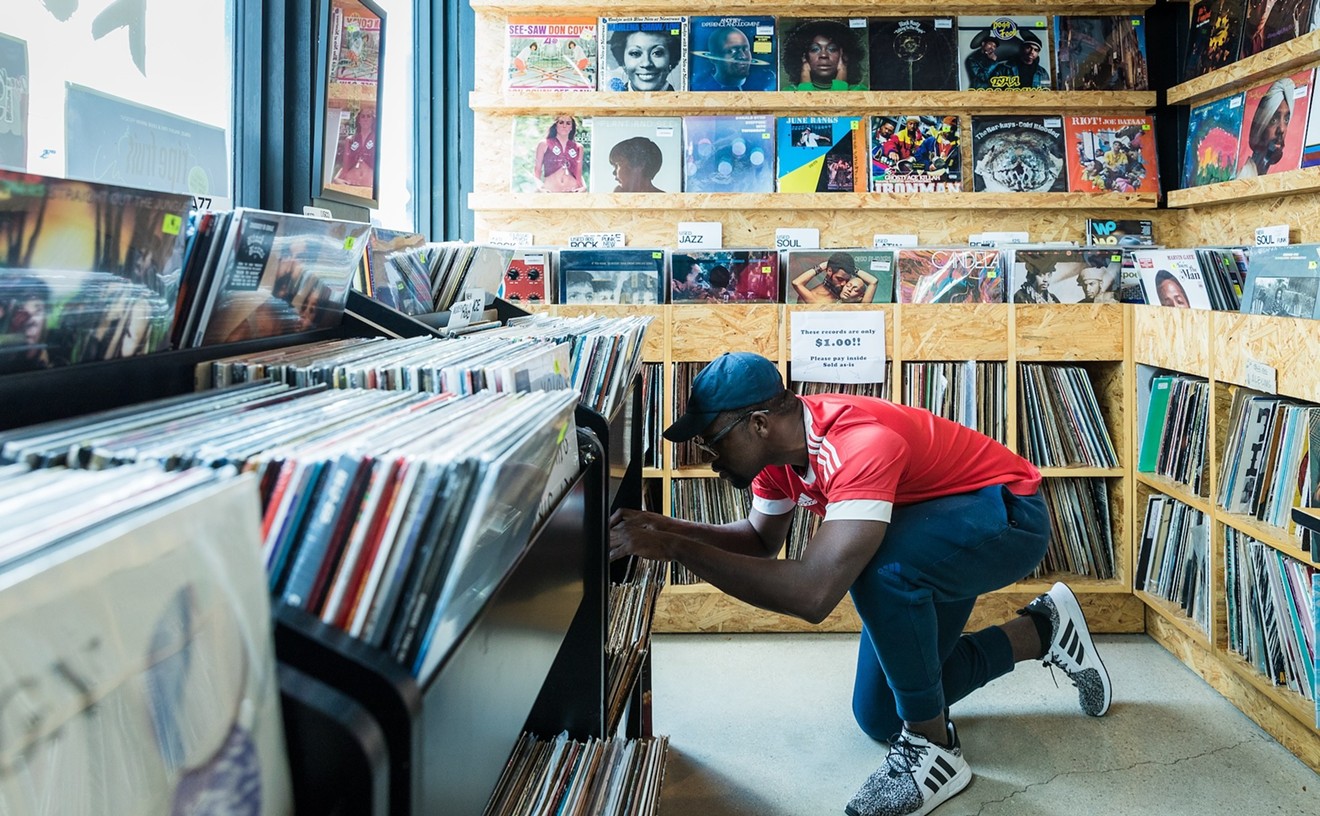For an area that boasts of itself as an entertainment capital (at least until a hurricane hits during the MTV Video Music Awards), the modest Billboard Conference was small potatoes. But for the hundreds of would-be moguls who paid up to $650, it was a rare glimpse into the inner workings of the urban music industry. They wrote down every word of advice -- do your research before you approach a company, try sending MP3s instead of CDs to labels and promoters who might sign you -- the stars dispensed to them. And at the end of every session, attendees rushed the stage in a frenzy, eager to procure a potentially valuable business card or e-mail address.
On the first day, Teddy Riley, Aaron Hall, and Damion Hall, better known as the Eighties R&B group Guy, gave an unscheduled performance to kick off the conference. The next morning, Riley returned to sit on the "Super Producers Panel" alongside local producers Cool & Dre (who are members of rapper Fat Joe's Terror Squad) and the Platinum Brothers (who have made tracks for Bone-Thugs-N-Harmony).
"Technology today is leading music back into single form," said Riley, an urban music legend who has worked with everyone from Doug E. Fresh to Michael Jackson, "and people are downloading the songs because the albums aren't any good." What advice did he have for an audience that frequently applauded his every statement? "Stay as independent as you can," he counseled.
Dre then launched into a public tirade against Jive Records, with whom his Epidemic Records label has a distribution deal. Apparently he and Jive were having trouble agreeing on the direction of Dirt Bag's (best known for his guest verse on Monica's single "Set It Off") upcoming album, Eyes Above Water, scheduled for a February 2005 release.
"We have four white guys sitting around a table listening to Dirt Bag and telling us, öThis don't sound like Miami,'" said Dre.
Clearly on a roll, Dre continued to lob opinions. "A label deal is like a marriage. Don't marry a woman you don't like in bed," he declared to wild cheers from the audience.
Moments after the panel concluded, nearly the entire room flooded the stage, inundating the superstar producers with promotional CDs and autograph requests. The competition for ear time was fierce, and the five panelists were still fielding queries long after a Billboard Conference employee had asked everyone to clear the room. But Cool, for his part, didn't seem to mind. "I'm happy to be here," he said amiably. "[Dre and I] feel you never know where the next big producer is."
Deep in the heart of South Beach, a small collection of intellectuals (a rare species in these parts), middle-age cineastes, and students seated themselves inside a film room at the Wolfsonian-FIU on the evening of Thursday, August 5. They eagerly awaited The Battleship Potemkin, the 1925 silent film classic by pioneering Soviet director Sergei Eisenstein. The movie would be projected against a white wall at one end of the room; on the right side of the wall sat experimental electronic composer Edward Bobb, who provided the score for the evening.
Shortly after the lights dimmed, an image of rippling ocean water appeared on the wall. The camera then focused on the Potemkin, where sailor Grigory Vakulinchuk read a letter to a shipmate announcing the start of the Russian Revolution. Vowing to bring the revolution to the ship, he quickly organized a protest against the food being cooked for that night's meal, slabs of meat infested with maggots.
As Vakulinchuk fomented rebellion on the Potemkin, driving his comrades to kill the officers even as he died in the ensuing fight, Bobb programmed waves of ambience from his laptop computer that seemed to project an eerie calm. Rather than awkwardly cutting from track to track, the music evolved and sharpened into a pure, harsh tone that underscored the rage being displayed on the screen, injecting tension into the audience and portending the struggle and hardship that lay ahead for the rebels.
After taking over the ship, the sailors landed at Odessa, where they deposited Vakulinchuk's body on the docks along with a note explaining his death. Thousands of townspeople, who had just walked down from their homes on top of the city steps to go to work, soon flooded the dock and, inspired by Vakulinchuk's death, vowed to help the Potemkin crew spread revolutionary fervor. As they greeted the sailors and gave them food and supplies, several ranks of soldiers descended the steps, killing every civilian in sight. But even as the massacre unfolded onscreen, Bobb's score didn't fundamentally change in tone; its earlier, uncomfortable quietude had become prophecy.
Bobb called his score, which is radically different from the upbeat, militaristic scores often composed to accompany Battleship Potemkin, a work of constructivism inspired by the Russian architectural movement of the Twenties that valued structure based on the memory of previous structures; or rather, a layering process that encourages the continuous, gradual innovation of previously existing objects over abrupt change. "Sometimes I'm playing a performance on top of a performance," he explained. "I am the machine inputting into the machine, and then I press a button and let the machine take over."










